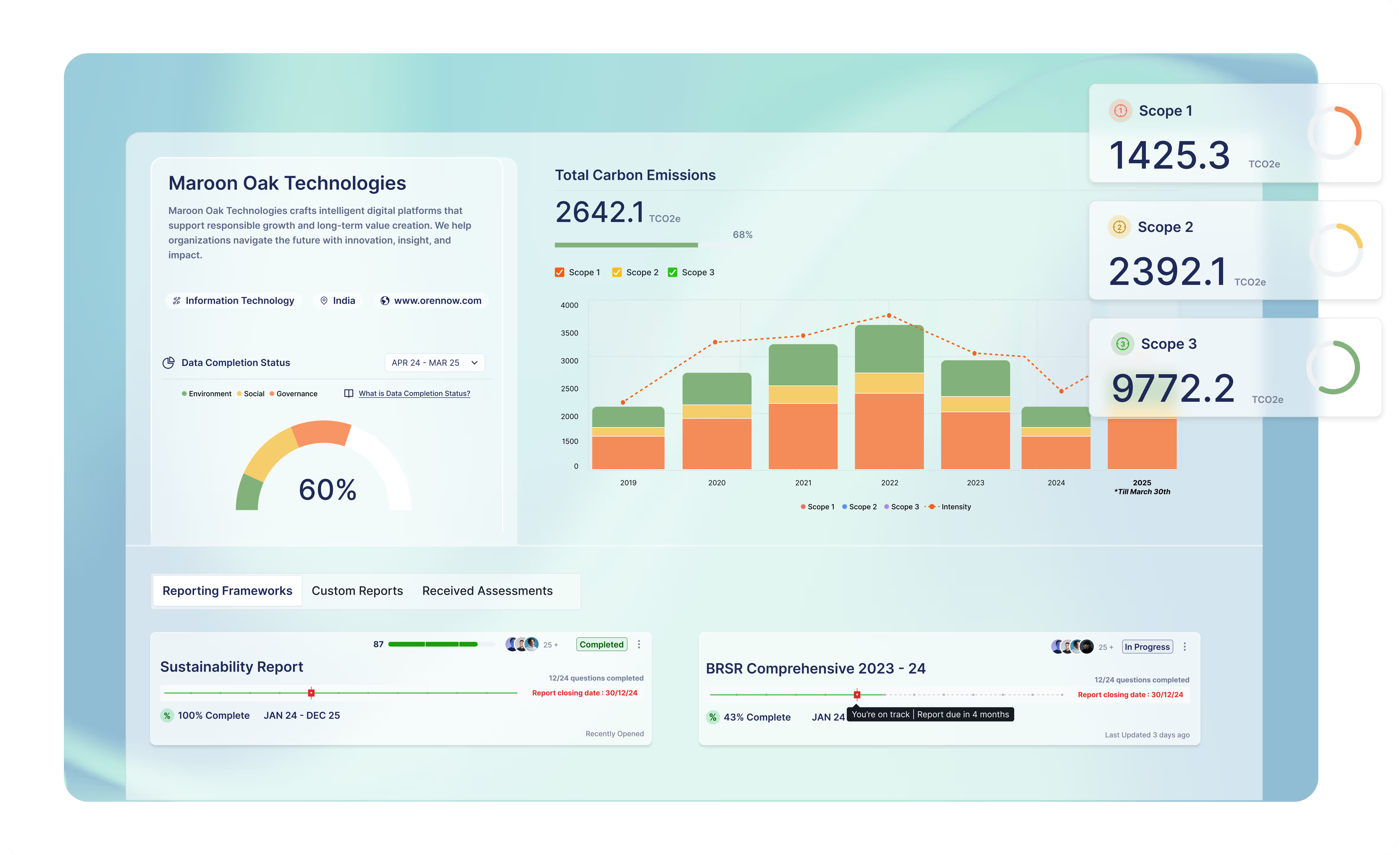BRSR vs. CSR: Understanding the Differences

ESG - A Sustainable Future
As the world focuses on environmental, social, and governance (ESG) factors and finds a path to a sustainable future, investors are adapting and attempting to understand the importance of sustainable development to their portfolios as businesses seek to be responsible and sustainable towards the environment and society. While it is simple to talk about the qualitative components of development, one area where ESG and impact investment have lagged is in quantifying output.
After all, investors are quantitative individuals who want to quantify every facet of a firm. They must dig down and concentrate on identifying important areas of importance as well as performance metrics that may be used to assess them. Reporting on a company's success in terms of sustainability-related aspects has become just as important as reporting on financial and operational performance. Quantitative indicators assist people in determining if companies are living up to their ESG and Corporate Social Responsibility (CSR) ideals or if it is gibberish designed to appease the sincere.
The new Business Responsibility and Sustainability Report (BRSR) structure in India tries to fix these problems by making companies drill down and look at each thing to make investors happy. The phrase "corporate sustainability" is being tossed around a lot as firms continue to take initiatives to become more sustainable. Some people even mix up business sustainability with words like "corporate social responsibility" (CSR).

What is BRSR?
The MCA's Committee on Business Responsibility Reporting, formed in 2018, advised that the BRR be renamed BRSR, in which disclosures are based on ESG criteria and require organizations to interact with stakeholders holistically and move beyond a compliance emphasis in reporting and measurement. While reporting will be mandatory beginning in the fiscal year 2022-23, SEBI suggests that firms begin reporting their performance in the fiscal years 2021-22 to be better equipped to implement the framework.
Organizations are increasingly viewed as vital components of the social system; they must account not just for their shareholders in terms of income and profitability, but also for the greater society, which is also a stakeholder. Businesses should report both the good and negative impacts of their business. This guarantees that firms are held accountable for their social and environmental repercussions.
Globally, there is a rising desire for firms to focus on long-term development goals and increase corporate social responsibility. While governments work to implement legislative changes, investors have begun to regard and consider such variables as critical parameters for influencing their investment decisions.
Investors (such as private equity funds, venture capital funds, social venture funds, banks, and financial institutions) are aiming to go beyond monetary returns to generate beneficial social and environmental effects. COVID-19's influence has already caused ripples in society, shifting attention to other social purposes.
In this context, the framework in India has advanced tremendously, with enhanced responsibility for directors and key staff, as well as increased disclosures about enterprises. The Indian government has taken several measures, one of which compels India Inc. (certain qualifying corporations) to spend 2% of their average net income on corporate social responsibility (CSR) operations in suitable regions.
What is CSR?

Corporate social responsibility (CSR) is a self-regulating business model that assists a firm in becoming socially accountable to itself, its stakeholders, and the general public. Companies that practice corporate social responsibility, also known as corporate citizenship, can be aware of the influence they have on all parts of society, including the economic, social, and environmental. CSR means that a company acts in ways that benefit society and the environment instead of harming them in the normal course of business. This is called "CSR."
The decision to implement a CSR regime went beyond charity initiatives to build a systematic methodology for societal impact. The government's CSR goal aligns with the government's aim of expanding disclosures on ESG reporting by Indian listed firms. According to this, it has become as important to report on a company's success in terms of environmental and social issues as it is to report on its financial and operational success.
Conclusion
Given the foregoing framework, this blog examines the interaction of the CSR and ESG regimes in India as well as how these metrics affect firms and investors. Both CSR and corporate sustainability are concerned with assisting businesses in operating in a way that allows them to be ethically profitable never at the expense of others. CSR and corporate sustainability both assist businesses in having a positive influence on those around them. These two ideas are intertwined. Corporate sustainability, after all, is a component of corporate social responsibility. However, there are some significant distinctions between them.





